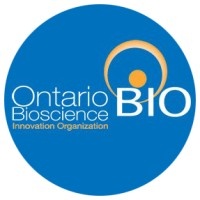
Open
OTF — Family Innovations Test Grant
Last Update: December 9, 2025
ON, Canada
Funding for grassroots, caregiver-led projects supporting Ontario families
Grant and Funding
At a glance
Funding available
Financing goals
Research and experimental development
Eligible Funding
- Maximum amount : 100,000 $
- Up to 10% of project cost
Timeline
- Closing date : July 8, 2026
Eligible candidates
Eligible Industries
- Health care and social assistance
Location
- Ontario
Legal structures
- Non-profit
- Public or Parapublic institution
Annual revenue
- $ 50,000 maximum revenue
Organisation size
- All organization sizes
Audience
- Indigenous Peoples
- Persons with Disabilities
- Language Minorities
- Other Racialized Persons
- Black Canadians
- Rural or Northern Residents
- 2SLGBTQI+
Non-profit candidates
Sector of operation
- Social Services
- Economic, Social and Community Development
- Children and Youth Organizations
- Diversity and Inclusion
Target groups
- Indigenous peoples
- New immigrants & refugees
- People with disabilities
- LGBTQ+ community
- Rural / Remote communities
- Low-income individuals / families
- Minority groups
Revenue structures
- Mixed revenue (<50% earned)
Scope
- Provincial
Overview
The OTF Family Innovations Test Grant provides up to $100,000 per year for 1 to 3 years to grassroots groups led by parents, guardians and caregivers to design and test new, community-driven ways of improving family wellbeing. Funding supports eligible activities such as piloting new project ideas, conducting research on issues affecting families, or leading collective strategy work around systemic barriers faced by parents, guardians and caregivers in Ontario.
Activities funded
- Piloting new community-led projects that support parents, guardians and caregivers to access resources, navigate social systems and improve their wellbeing.
- Adapting and testing existing family support models or ideas from other regions to meet the specific needs of parents, guardians and caregivers in the local community.
- Establishing learning circles or peer groups where parents, guardians and caregivers can share experiences, build skills and receive support around issues such as disability, mental health or overall family wellbeing.
- Conducting participatory research to better understand issues or emerging concepts affecting families, including how new technologies or approaches may impact parents, guardians and caregivers.
- Convening parents, guardians and caregivers to collectively analyze an issue, map existing efforts, develop shared strategies and define next steps to address systemic barriers affecting family wellbeing.
Eligibility
- The applicant must be either a grassroots group that is not a registered charity or incorporated not-for-profit, or a not-for-profit corporation without share capital with independently managed revenues of $50,000 or less in each of the last two fiscal years.
- The group must be led by parents, guardians and/or caregivers, with more than 50% of core members being parents, guardians or caregivers who share the identities and lived experiences of the parents, guardians and caregivers served.
- The group must have at least three core members, with more than 50% of them at arm’s length from each other (not related, married, or in business partnerships that could create conflicts of interest).
- The group must be based in Ontario and its project must directly benefit parents, guardians and caregivers in Ontario, strongly aligning with one Family Innovations Priority Outcome and YOF’s policies.
- The applicant must agree to work with an eligible Organizational Mentor under a collaborative agreement for administrative support, mentoring and financial accountability.
Who is eligible?
- Grassroots, unincorporated community groups led by parents, guardians and/or caregivers
- Grassroots groups from First Nations communities (with no more than 50% of members from band office or band council)
- Not-for-profit organizations without share capital incorporated in a Canadian jurisdiction, led by parents, guardians and/or caregivers
- Chartered Community Councils operating under the Métis Nation of Ontario (incorporated as not-for-profit without share capital)
- Inuit communities registered as not-for-profit corporations without share capital in Canada
Who is not eligible
- Registered charitable organizations.
- Religious entities established for the observation of religious beliefs (for example, churches, temples, mosques, synagogues).
- Municipalities and any groups or projects based within a municipal structure.
- Groups or projects based at existing organizations (whether not-for-profit or for-profit), including committees or clubs within municipalities, universities, schools, hospitals, or similar institutions that are set up to serve parents, guardians and caregivers.
- For-profit businesses and individual applicants.
Eligible expenses
- Salaries and benefits for full-time staff (35 hours or more per week) working on the project.
- Salaries and benefits for part-time staff (less than 35 hours per week) working on the project.
- Transportation costs directly related to project delivery.
- Honoraria to recognize the contributions of community leaders, Elders and/or volunteers involved in the project.
- Support services such as translation, interpretation and child-minding required for project activities.
- Project supplies and materials needed to carry out the planned activities.
- Project equipment, either rented or purchased, that is necessary for the project.
- Food costs for program participants during project activities.
- Communications expenses, including website and promotional materials, directly tied to the project.
- Professional fees for services delivered by experts or facilitators supporting the project.
- Administrative support costs for the Organizational Mentor, set at 15% of the total project budget.
- Capacity building costs between $2,000 and $4,000 per year, for learning and development activities that strengthen the group’s ability to deliver the project.
Eligible geographic areas
- Groups based in Ontario, Canada, whose projects will benefit parents, guardians and caregivers in Ontario.
Selection criteria
- Group Eligibility (pass/fail): The group must meet all structural and governance requirements (e.g. correct leadership structure, independence from larger organizations, revenue thresholds, Ontario focus) and submit a complete, clearly written Expression of Interest.
- People – Strong Grassroots Leadership (40% of assessment): The core team collectively demonstrates the right mix of knowledge, skills and experience to deliver the project, and shows strong connections to the issues and to the community they intend to serve.
- Strategy – Setting the Context (Issue & Idea) – part of 60%: The application clearly explains the idea to be tested, research to be conducted, or strategy work to be led, and shows how it addresses systemic barriers faced by parents, guardians or caregivers with a culturally grounded approach.
- Strategy – Potential for Impact (Idea & Impact) – part of 60%: Parents, guardians and caregivers are the direct beneficiaries, and the expected changes are realistic to achieve within the project and clearly aligned with the selected Priority Outcome.
How to apply
1
Expression of Interest
- Create an OTF account if you are a new user, or sign in to the Granting Portal if you already have an account.
- Complete the Expression of Interest form once the application portal opens.
- Submit the Expression of Interest by the specified deadline. Late submissions will not be accepted.
2
Review and Assessment of Expression of Interest
- The submitted EOI is reviewed for eligibility and readiness to do the proposed work.
- The assessment includes checking the potential impact and the understanding of beneficiaries’ needs and experiences.
- The online presence of applicants is reviewed to ensure they deliver eligible and relevant activities.
- Receive notification of the status of your Expression of Interest approximately 6 weeks after the deadline.
3
Connection with Organizational Mentor
- Initiate early contact with potential Organizational Mentors to confirm eligibility.
- Collaborate with an Organizational Mentor to draft the grant application if your EOI is shortlisted.
4
Submit the Grant Application
- Participate in a mandatory webinar about the grant application process and next steps.
- Work with the Organizational Mentor to finalize the Collaborative Agreement and the grant application.
- Upload the signed Organizational Mentor-Grassroots Group Collaborative Agreement with your grant application.
- Submit the complete grant application by the deadline.
5
Recommendation and Selection
The Grant Review Committee provides recommendations which are approved by the OTF’s Board of Directors.
6
Notification
Receive notification of your grant application status approximately 8 weeks after the application deadline.
7
Confirmation and Orientation
- Participate in a mandatory orientation session and trainings if the grant is awarded.
- The Organizational Mentor receives the OTF Grant Contract and is responsible for signing it.
8
After Approval
- Engage in reporting and monitoring activities to track project progress and complete annual and final reports.
- Utilize capacity building opportunities to connect and network with other grantees.
- Assist in evaluation activities to measure project success towards the chosen Priority Outcome.
- Upon approval of the Final Report by OTF, receive the final payment for the project.
- Be aware of the possibility of a Grantee Compliance Audit during or after the grant period.
Additional information
- The Expression of Interest is the first step, and only shortlisted groups are invited to submit a full grant application.
- All applicants must partner with an Organizational Mentor, which provides administrative support, mentoring, and financial accountability.
- Successful groups are required to participate in mandatory orientation sessions, trainings, and capacity-building activities during the grant.
- Grants may be subject to a compliance audit at any point during the project or after the grant has been closed.
Contacts
yof@otf.ca
1‑800‑263‑2887
ON, Canada
Apply to this program
Frequently Asked Questions about the OTF — Family Innovations Test Grant Program
Here are answers to the most common questions about the OTF — Family Innovations Test Grant. This section explains what the program is, how much funding is available, eligibility requirements, application deadlines, and other important details to help you determine if this grant is right for your business.
What is the OTF — Family Innovations Test Grant?
How much funding can be received?
Who is eligible for the OTF — Family Innovations Test Grant program?
What expenses are eligible under OTF — Family Innovations Test Grant?
Who can I contact for more information about the OTF — Family Innovations Test Grant?
Where is the OTF — Family Innovations Test Grant available?
Is the OTF — Family Innovations Test Grant a grant, loan, or tax credit?
Apply to this program
More programs like this

Grant and FundingExpert AdviceOpen
Expanded Energy Management Program
Independent Electricity System Operator (IESO)Funding to strengthen facility energy management and efficiency initiatives

Grant and FundingOpen
XLerate Program
Independent Electricity System Operator (IESO)Pay-for-performance funding for large-scale Ontario energy-efficiency projects

Grant and FundingOpen
FedDev Ontario — Economic Development Initiative (Southern Ontario) — Not-For-Profit
Federal Economic Development Agency for Southern Ontario (FedDev)Assistance for Francophone projects in southern Ontario

Grant and FundingClosed
Ontario Anti-Hate Security and Prevention Grant (2025-26)
Government of OntarioSupports Ontario organizations enhancing security against hate‑motivated incidents

Grant and FundingOpen
Regional Artificial Intelligence Initiative (RAII) for Northern Ontario
Federal Economic Development Agency for Northern Ontario (FedNor)Funding AI commercialization and adoption in Northern Ontario businesses

Grant and FundingOpen
FedDev — Funding for southern Ontario
Federal Economic Development Agency for Southern Ontario (FedDev)Funding for businesses in southern Ontario by FedDev Ontario.

Grant and FundingOpen
OTF — Organizational Mentors
Ontario Trillium Foundation (OTF)Supports organizations mentoring grassroots groups to deliver funded projects

Expert AdviceLoans and Capital investmentsClosed
Capital Access Advisory Program (CAAP) — Building Companies
Ontario Bioscience Innovation Organization (OBIO)Business assistance for health science companies

Grant and FundingOpen
OTF — Economic Recovery and Resilience Fund
Ontario Trillium Foundation (OTF)Supports Black youth pathways to jobs and entrepreneurship

Grant and FundingClosed
Enabling Accessibility Fund — Small projects
Employment and Social Development Canada (ESDC)Funding to create more accessible, safe spaces
Sign up to our platform to access the OTF — Family Innovations Test Grant information sheet for free
Get access to 4,000+ programs, practical guides, personalized alerts, and an AI assistant to support your grant applications.